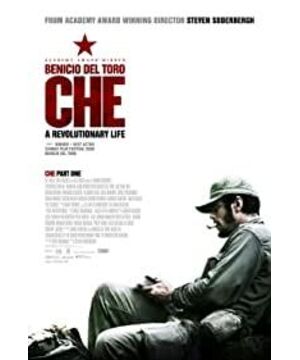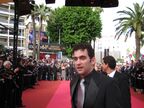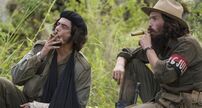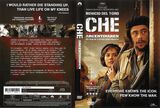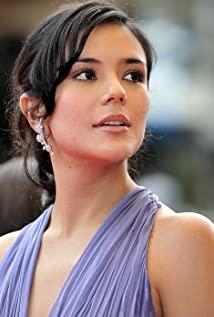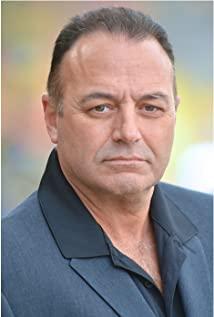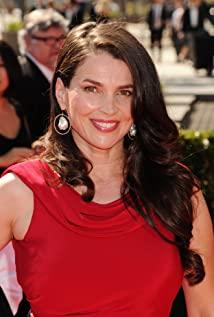This article was originally published on the public account No. 10, and is reproduced here as a supplement to the background of the film...
One day in April 1967, in the famous and mysterious building in Langley, Virginia, a coded telegram had just been translated: "A guerrilla close to Castro confirms that Che Guevara is in Bolivia. ."
This information opened the prelude to the later story.
After studying the telegram, CIA analysts chose not to trust the content of the intelligence.
"where is he"
Since the victory of the revolution led by Castro, the United States has deeply felt the great threat of his close Argentine comrade-in-arms. Guevara's influence goes far beyond Latin America, across the Caribbean Sea, across the Gulf of Mexico, and descends on the American soil.
On American university campuses, young students full of rebellious spirits scrambled to read Guevara's famous book "Guerrilla Warfare", reciting the stirring sentences in the book: "Guerrilla warfare is a struggle of the masses, it is a struggle of the people."
The US State Department has warned that Guevara is "the most dangerous enemy of a democracy". The U.S. government has tasked the CIA to hunt down this most dangerous enemy.
But the end of this dangerous enemy has been lost since leaving Cuba two years ago. Be a ghost, everywhere but nowhere to be found.
The CIA has collected and mastered almost all of Guevara's information, but it doesn't know where he is now, or even if he is dead or alive.
Combining multiple sources of intelligence, the CIA's prevailing view was that Guevara was dead and buried in an unmarked grave in the Dominican Republic.
Unexpectedly, news came from South America at the beginning of the year that the Bolivian government army was attacked by unknown armed forces in the tropical jungle in the southeast, and there were foreigners in it. The President of Bolivia has requested emergency military assistance from the United States.
The US special forces "Green Berets" sent a 13-man squad to Bolivia to train government commandos and master tactics against guerrillas.
This telegram is the result of a battle between trained government commandos and guerrillas.
Guevara still alive? Right in Bolivia? CIA analysts couldn't believe it. They couldn't figure it out anyway, how he was risking his way into the backcountry of the backward country of Bolivia.
He was wealthy, well-educated, had a decent career, was handsome, and could have had everything in the world, fancy clothes, money, sports cars, mansions, beautiful women. However, he chose to go into exile, fight, revolutionize, endure hardship and shed blood. What exactly is this for?
It is said that he abandoned the prosperous life in Argentina ten years ago and his enviable career as a doctor for the liberation of the poor people. He and 81 like-minded young people boarded the old yacht "Grama" that was almost falling apart and sailed through the turbulent waves. sea, towards Cuba. Two years later, he and Castro's guerrillas established a new regime in Cuba.
The fruits of victory were in hand, and it was time to indulge, but he unexpectedly resigned from all important positions in the Cuban party and government, left a letter to Castro, left Cuba, and went to a new revolution in a poorer country.
A rare pure idealist. After the success of the bloody battle, he has no hesitation to go to the poorer places to fight hard, and has a huge power but disdain to compete for power and profit in the political circle.
He has since disappeared from public view. No one knows his whereabouts.
This latest intelligence from Bolivia, the CIA does not want to believe, nor dare to deny it easily.
Two Cuban-born CIA agents were selected and sent to find Guevara in the impoverished country in central South America.
Felix Rodriguez and Gustavo Velodo accepted the task in high spirits. The two have a personal vendetta against Guevara.
Their families were originally from the wealthy ruling class in Cuba, and the revolution of Castro and Guevara left them without property and power, lost their homes, and fled to the United States as refugees.
Velodo's hatred for Guevara is more direct and profound. Guevara led guerrillas to surround their home. Guevara personally interrogated his father and gave the wealthy factory owner and farmer two choices: either hand over the family property to the state and spend his old age in peace; A son was handed over to the firing squad to be executed.
This capitalist cannot understand the fact that he takes away his hard-earned assets and distributes them to the parasites of society. The next morning, Velodo found his father dead in bed with an empty bottle of sleeping pills beside him.
Velodo swore to make Guevara pay for his life.
Guevara's aggressiveness made him more enemies and less friends.
Rodriguez joined the CIA as a Cuban refugee and soon became an intelligence expert. He is good at interrogation, and is good at digging out important information from the mouths of those who are unwilling to cooperate.
After arriving in Bolivia, he diligently studied Debray's files and interrogation records.
The "guerrilla close to Castro" the telegram said was the member of the French Communist Party: Jules Regis Debray.
He is a somewhat well-known Marxist scholar in France, and has written a book called "Revolution within a Revolution" about guerrilla warfare tactics. The revolutionary feelings cultivated in the study of the study for many years, as well as his admiration for the revolutionary idol Guevara, prompted him to go to the depths of the Bolivian jungle and join the guerrilla warfare.
Although he saw the idol he had admired for a long time, the reality of the revolution still shocked him. so horrible! For months, he lived in a filthy camp, with mosquito bites, scorching heat and stench. Add fighting, bloodshed, and even death. He felt that he had suddenly fallen from the civilized world into the barbaric abyss of primitive society.
Debray also has a resonator at the camp, Ciro Roberto Bustos. With romantic fantasies about revolution and guerrilla warfare, the Argentine painter likes to rhetoric about Marx and Stalin and lure women at parties with deviant rhetoric.
This shallow revolutionary who plunges into guerrilla warfare finds that it is a completely foreign world, carrying guns, marching, and enduring filth, brutality, and all kinds of discomfort. He had no real intentions for the revolution at all, he had no real interest in it.
The two got together, complaining constantly, planning all day how to leave the camp and return to the civilized world. In April 1967, they planned to accompany a British journalist who had found a guerrilla camp to interview.
Guevara's attitude is: "It's going to rain, my mother wants to get married, let it go!"
Guevara's romantic temperament does not adapt to the survival law of brutal struggle. He did not expect that the departure of these two people knocked down the first domino.
Bolivian government commandos trained by "green berets" learned the experience of dealing with guerrilla warfare. Soon after the two intellectual revolutionaries left the guerrilla camp, they fell into the hands of government commandos.
The two sat in the cell, not knowing when they would die. They caved and told the Americans and Bolivian soldiers everything they knew.
"He's here"
Debray's most crucial sentence is: "Guevara is in Bolivia, in the jungle of the Rio Grande."
Rodriguez noticed a man as he pored over Debray's interrogation transcript. Debray said there was a young man in the guerrillas who went by the pseudonym "Pago", who always complained that he had been deceived by the Bolivian Communist Party. Because the person who introduced him to join the guerrillas said that he could get an education in Havana and Moscow through this way.
After arriving at the guerrillas, no one told him about going abroad to study, but he was given a Mauser, 120 rounds of ammunition, and a heavy backpack, and then he went endlessly over mountains and mountains, marching to fight.
Rodriguez's professional acumen made him realize that Paco was an excellent source of intelligence.
Bustos used his artistic talents to draw the interrogator an accurate map of the guerrilla camp, with detailed annotations.
According to this map, the Bolivian army found several strongholds where the guerrillas were hiding weapons, and found medical supplies, passports, telegrams, codebooks, and some photos, a cigar butt.
CIA experts are particularly interested in a passport photo. The man is clean-shaven, wears glasses, and has a receding hairline. They were very excited, they knew who this might be, but, out of prudence, they needed to be researched to confirm. They conducted various analyses on the cigar butt, and then compared it with Guevara's files, and the answer basically came out.
Unbeknownst to Guevara at this time, the two intellectuals who defected to the revolution betrayed the hero they admired.
Rodriguez combed through every piece of paper seized from the guerrillas, building a file for every known guerrilla. Name, nickname, code name, military rank, age, nationality, whether you smoke, what weapons you carry, what clothes you wear, your speech and behavior habits, and your quirks.
He also studies how guerrillas form gangs, the barriers between them, who likes who, do they like Guevara?
He hopes to capture one more guerrilla and get as much intelligence on Guevara as possible. Better to catch Pago.
Here comes the opportunity. The opportunity is provided by a farmer.
Guevara traveled thousands of miles to Bolivia to help the poor peasants here get rid of capitalist rule and exploitation.
However, the farmers here are not very appreciative. They are naturally wary of strangers, and they only care about how to make money to support their families.
On this day, the guerrillas marching in the Valle Grande area planned to cross the Rio Grande on foot, and the team found a farmer to ask for directions. The farmer promised to go to the river to find a safe crossing for the guerrillas.
However, the farmer named Onorato Rojas did not go to find the way, but quietly ran to the station of the government commando.
As a result, the guerrillas were ambushed, nine killed and one arrested. The arrested young team member explained that his name was "Pago" at the camp.
Rodriguez had previously built up a file several centimeters thick for Pago, carefully researching it page by page.
As an expert in interrogation, Rodriguez is good at breaking through the psychological defenses of different objects. He realized that Pago was not a staunch revolutionary. Although he longed for revolution, he complained of being deceived. There is a gap between his beliefs and his encounters, and Rodriguez decides to insert a wedge and pry his mouth open.
Rodriguez succeeded. Paco's explanation is rich and detailed. He said that the guerrilla leader named Raymond was Che Guevara. He said that Guevara divided the team of more than 50 people into three parts: the front troop, the central troop, and the rear troop. Keep a distance of several hundred meters between the three teams. The vanguard is 6-8 people, and the central force is the main force and Guevara.
Rodriguez extracted the fingerprints of all the fallen guerrillas, and after comparing them one by one with the files, confirmed that one of them was Miguel.
Paco explained that Miguel was appointed by Guevara as the commander of the vanguard not long ago.
Guevara's whereabouts are no longer a mystery. He is nearby.
Rodriguez said to Colonel Centeno of the Bolivian government army: The commandos can go. Target: Vaye Grande. Guevara is there.
In this part of southern Bolivia, Guevara's revolution was a little acclimatized. They tried to mobilize the masses, but were very unsuccessful. They wanted to expand their troops, but no one responded.
In the occupied areas, the guerrillas issued scouts to the villagers and preached: You call us bandits, but we are fighting for you, for the working class, for those workers and peasants with meager incomes. At this time, the Bolivian military received extremely high salaries. You work for them, but tell me, what have they done for you? You have no water here, no electricity. You are abandoned. That's why we have to fight.
The villagers were silent.
Guevara believes that: the ignorance and backwardness of the peasants make them unable to understand what is happening in the American continent, and their liberation will take time.
Poverty limits their imagination? perhaps.
The villagers also have something of interest. They listened very carefully to an official announcement on the radio.
The Bolivian government is offering a reward for the capture of a foreigner named Che Guevara in Vallegrande. The government offered him 50,000 Bolivianos, or $4,200, for his head. It's a very tempting number.
Many farmers started looking for this foreigner.
At about 6:30 am on October 8, 1967, a local farmer excitedly came to the government commando station.
He said that while he was irrigating a potato field by a creek before dawn, he saw more than a dozen strange men walking along the river bank, among them foreigners.
The government commandos set off immediately. Weather, location, people, they have it all.
The guerrillas were crushed.
One of the arrested guerrillas was undoubtedly a foreigner. The beard is bushy, the eyes are clear, and the gaze is impressive. His distinctive beard and face are instantly recognizable to anyone who has seen his photos.
"Who are you?" The commando commander's heart was beating wildly, trying to stay calm.
"I'm Che Guevara." Even in rags, with a wounded leg and bleeding, the man still exudes charisma.
The commander asked him to extend his left hand. A long scar, the same as the intelligence description.
Failure is a foregone conclusion.
If Guevara chooses another region to start his revolution, in a place close to a network of mines and cities, he might have a chance of winning. The people there are deeply dissatisfied with the rulers and resent the military regime. May become the soil of revolution.
However, he chose this sparsely populated jungle area in southeastern Bolivia, where farmers are closed and conservative and wary of outsiders. Instead of being able to mobilize the local peasants to become a force against the rulers, Guevara was betrayed by them.
There were also rifts within the guerrillas that accelerated Guevara's defeat.
Rodriguez came to the small rural school where Guevara was imprisoned as a victor, with a hatred of his family and his country.
"Che Guevara, I want to talk to you."
"No one can question me." The ropes were tightly tied and the wound was bleeding, which could not hide Guevara's dignity.
"Commander, I'm not here to interrogate you. Our ideals are different, but I admire you. I still want to talk to you. You were a minister in Cuba, look at you now! You've become like this, yes Because of your own ideals. Even though I think it's wrong, I still want to talk to you."
Rodriguez asked the guards to untie Guevara. Find a less pointed topic first;
"You, a doctor, are president of the National Bank of Cuba. Do doctors understand economics?"
"Do you know how I became president of the National Bank of Cuba?" Guevara laughed. "One day, we had a meeting and Castro came in and said, we're looking for an economist who does his job. I got it wrong. I thought he was looking for a committed communist, so I raised my hand. Castro chose me to be the leader of the Cuban economy.”
No wonder, after the revolutionary banker took office, he proposed to abolish currency and build a "civilization without money".
Rodriguez changed the conversation: "You are a foreigner, and you have invaded the sovereign territory of Bolivia."
Guevara was very dismissive: "You can't understand the reasons for the revolution."
"I'm bleeding for Bolivia." Guevara pointed to a corpse beside him, his comrade Oka: "Look at this man, he's in Cuba, he got everything he wanted. However, he came Here, died like this. Willing to sacrifice because he believed in his ideals."
Faith is fiercely confronted, and the interrogation cannot go deep.
What to do with the world's most feared revolutionary? Bolivia's presidential palace meeting debated.
The trial of Guevara will surely cause an international storm and become a disaster.
"Moreover, there is no death penalty in Bolivia, and the maximum sentence is 30 years in prison." Commander-in-chief Owando reminded President Barrientos, "Where do we imprison him for 30 years?" Bolivia does not have a prison that is safe enough, and the revolutionaries will attack Prison, Cuba might send troops to rescue him.
No choice but to kill him.
At around 10 a.m. on October 9, 1967, a commando soldier came to Rodriguez: "Phone! Command is going to speak to the highest-ranking officer here."
Rodriguespe had the rank of captain in Bolivia, the highest-ranking officer here.
"I'm Captain Ramos." He used his pseudonym.
"Ramos, you are authorized by your superiors to perform Operation 500 and Operation 600."
500 is the code for Guevara and 600 is the code for the death penalty. If you want him alive, the order is 700.
"Please repeat." The US government's order to Rodriguez was to keep him alive. The US government wants to smuggle Guevara to Panama for trial.
Still 500 and 600.
Rodriguez was helpless. He was just a CIA consultant sent to Bolivia. This is someone else's country, with their rules.
He remembered Guevara's resourcefulness. Castro was also imprisoned, but finally escaped and subverted Cuba.
As long as Guevara is alive, it is very dangerous.
Rodriguez walked into the classroom where Guevara was imprisoned again: "Commander, this is an order from the Bolivian Supreme Command."
"This is better. I shouldn't have let myself be captured alive." Guevara was very calm. He knew that Death was at the door.
"Anything to tell your family?"
"Tell my wife to let her remarry and be happy."
Guevara approached Rodriguez, shook his hand, and gave him a hug. In the last moments of his life, his dignity remained.
Rodriguez has run out of hatred. He went to the door and gave instructions to the soldier with the gun: "This man should die of war wounds, don't shoot in the face."
Soldiers with guns entered the classroom.
Guevara was unafraid.
"I know you're here to kill me. Coward, shoot! You're just killing a man!" Even the staunch anti-communists admired his demeanor in the face of death - fighting to the end without justification.
Several short shots of gunfire came, and Rodriguez looked at his watch, it was 1:10 p.m.
Mission is over. When Rodriguez returned to his residence at night, a strange thing happened.
He suddenly felt a strange cramp in his chest, his lungs shrunk, and he was gasping for breath. The doctor later told him that it was asthma. However, he had never had asthma before.
He recalled with horror the records in the Guevara file: Che Guevara suffered from severe congenital asthma.
In the years that followed, every time Rodriguez had an asthma attack, he recalled the terrifying moment on the night that ended Guevara's life.
Three days later, at midnight, the Cuban-CIA agent Verodo, who had vowed to make Guevara's life, drove a truck out of the local hospital with two Bolivian soldiers and headed for the expanding Valle Grande. Airport construction site. The carriages at the back were covered with canvas. Under the canvas, is Guevara.
The truck was parked on the edge of a depression near the new runway. There is a newly dug pit more than 10 meters on the right, 9 meters wide and 5.5 meters deep.
They threw Guevara's body into the pit, and bulldozers filled it up.
The sky started to rain. Velodo was thankful that he was wearing a sweater, while the others were shivering with cold.
Guevara disappeared into the damp darkness.
The tomb has no markings.
They thought that Guevara had come to an end. it's all over.
"He is everywhere"
However, all is not gone, all is not over.
"We beat Guevara and killed him. Even if he died, he still got all the glory, and we didn't get any credit." Many years later, a government commando who participated in the hunt was filled with emotion.
Time flies, the murderer has long been unknown, but the deceased has become a super star.
Guevara became a super big IP.
In Bolivia, where he was betrayed and killed, in the poor country he deeply sympathized with, in the capitalist world he detested, in the bustling cities and remote countryside, businessmen with a keen sense of smell have thrown themselves into the craze of marketing the myth of Guevara .
The people who consume him are all over the world, covering all classes.
Even if young consumers don't know who Guevara is, it does not affect his pursuit in the least.
The famous beret, long-haired shawl, gritty expression, and deep-eyed face has taken the world by storm, printed on T-shirts, posters, coffee mugs and key rings. Sold to trendy men and women who don't know who he is.
Known as "the world's most revolutionary and combative" head portrait, by photographer Alberto Kord.
"It seemed that there was an indescribable power in his expression, and after so many deaths, this power turned into anger and appeared in his sight." Alberto Kord never forgets that Guevara left in front of the camera. his strong impression.
It doesn't matter if you don't know this. Guevara's unrestrained appearance and unruly demeanor, coupled with artist Jim Fitzpatrick's re-creation of photos in red, white and black, make this image's visual impact bursting, cool and unusual, and it has become a global popular culture The symbol has become a symbol of the spirit of freedom and independence sweeping the world.
Cool, that's enough! What ideals, beliefs, whatever!
A wealthy German-Venezuelan man disagreed: "He is just good-looking. Those in the West who make clothes with his head portrait don't understand his thoughts at all. It is because he is good-looking that he is so popular."
Of course there are people who know him. Some people like him, not just the avatar.
Many people who talk about feelings are deeply fascinated by Guevara's romanticism and idealism.
His revolutionary enthusiasm was so stirring. He came from a wealthy family but gave up a comfortable life, went to a foreign country after winning the revolution, turned himself into a arduous guerrilla war when he was in power, and relentlessly entered Bolivia after the defeat in Africa to continue fighting until he died. He raised his arms, and how many people were willing to give up high-ranking officials and follow him to Congo and Bolivia.
Such an ups and downs legend is the magnificent life imagined by many people.
His charisma is so strange and charming. Time magazine wrote: "His face was full of a wry smile that seduces women." He was extraordinarily brave and had a mysterious obsession with danger. He wrote in a letter at home: "The gunfire of war never frightened me, but excited me." During the Cuban war, Castro even ordered him not to rush to the front to directly participate in the war. Fearlessness cannot describe him, he is almost a love of danger, keen to challenge danger and overcome danger. He represented Cuba at the United Nations General Assembly, with a military uniform and leather boots and cigars. Not many national leaders are as sexy, eclectic and bohemian as he is.
Even his failures became part of his charm. "Guevara's failures established him as an icon. His story is about failure and isolation, which is why it's so enticing. Had he been alive, Guevara's legend would have long been forgotten."
His dignity in the face of death has earned him widespread respect.
His utopian temperament made his failure inevitable. His enemies therefore like him somewhat. An adversary lacking real danger is a very affordable political ornament.
Those who approve of his political ideas, like pilgrims, relive Guevara's battle footsteps, walking through the mountain roads, jungles, and small towns of southern Bolivia.
In Valle Grande, where Guevara was killed, the most prominent place in the town square stands the Guevara Museum. The villagers and their descendants who did not welcome him and betrayed him in those days completely changed their attitude towards him after discovering that the dead foreigner had become a lucrative commodity. Guevara is now the most beloved person here. He has brought many tourists and consumers to the local area, and he has become a best-selling brand with a lot of money.
Before the school building where Guevara was shot, a bust of Guevara was erected. The laundry room of the town's hospital, where Guevara's body was displayed, is now a tourist attraction. The walls became graffiti boards for revolution admirers. "Viva Guevara" is painted on the walls of many cities and villages in Bolivia.
Less than a year after Guevara was killed, the May storm broke out in Paris, and young people with strong dissatisfaction with reality held up his portrait, shouted his name, took to the streets, and said "no" to the ruler!
The way Bolivian communists commemorate Guevara is direct and concise. They executed Onorato Rojas in July 1969, the peasant who had sold the guerrillas to government forces two years earlier, igniting Guevara's arrest.
In July 1997, the secret of Guevara's burial site was leaked, and a team of Cuban geologists and Argentine forensic anthropologists came to Bolivia and found his remains in a mass grave next to the Valle Grande airport.
Cuba built a mausoleum in Santa Clara, where Guevara and six comrades-in-arms were grandly buried. In front of the Ministry of Interior in Havana's Revolution Square, the 5-story Guevara statue stands majestically.
People who have no interest in politics do not delay the deep interest in Guevara. Every year on October 9, the anniversary of Guevara's death, thousands of people gather in Valle Grande to hold a variety of commemorative activities, music, dance, lectures, speeches, art exhibitions, various Souvenirs sell well. Consumers use raves to follow their idols.
Some say he is the most romantic man of the 20th century. His romance is not for love, but for dreams.
Celebrities, rock singers, and dignitaries see him as a symbol of freedom of personality.
This great revolutionary hero is now playing a very capitalist role.
This is something Guevara never imagined before his death. He was betrayed by the class brothers for whom he fought and bleed, and killed him with the enemy. These men and their descendants again consecrated him, consumed him, entertained him, made money with him, and enjoyed the rotten way of life that he hated and wanted to overthrow.
View more about Che: Part One reviews


